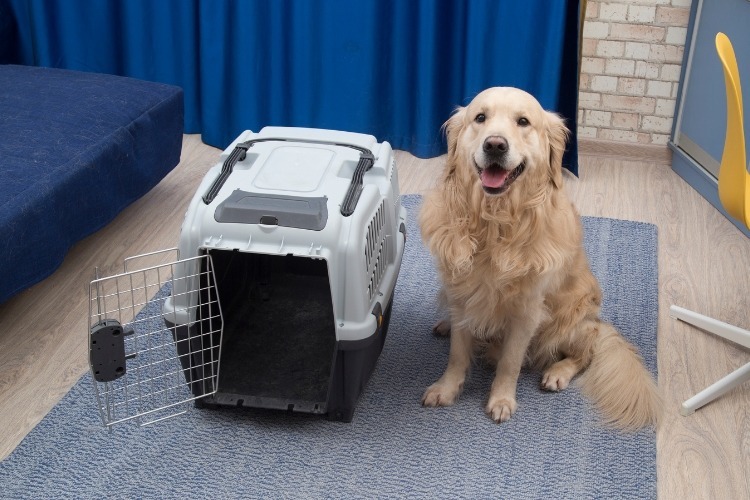Entrusting your beloved pet to a boarding facility can be a nerve-wracking decision, especially for first-time users. With so many options available, ensuring your furry friend gets the best care is a priority for every pet owner. If you’re exploring the best dog hotel in Singapore, it’s important to understand the common challenges that pet owners and service providers face. These complaints shed light on areas for improvement in the industry and help foster better communication and trust between all parties involved.
Common Complaints from Pet Owners

Unclear Pricing and Additional Fees
Hidden costs are among the top frustrations for pet owners. Many facilities advertise competitive rates but fail to disclose additional fees until checkout. A dog owner might expect to pay $50 per night for boarding, only to find their bill inflated by grooming fees, medication charges, or playtime add-ons.
For instance, one customer shared their frustration after discovering a $40 daily charge for administering medication to their senior dog, even though they had communicated this need in advance. Such situations highlight the importance of transparency. Pet owners should ask for an itemised breakdown before confirming a booking, while providers should ensure all charges are clearly outlined in writing. Understanding common complaints about dog hotels can further prepare pet owners to ask the right questions.
Concerns About Cleanliness and Space
Cleanliness and adequate space are fundamental to a pet’s comfort and well-being. However, not all facilities meet these basic expectations. Reports of dirty kennels, unpleasant odours, or overcrowding are common. One pet owner recounted how their dog returned home with irritated paws, likely caused by prolonged exposure to wet or unhygienic flooring.
Facilities with strict sanitation routines and spacious enclosures are often rated more highly. For pet owners, requesting a facility tour or video of the enclosures can provide insight into how well the space is maintained. Checking reviews on platforms such as Google or SPCA Singapore can also be helpful.
Limited Updates During the Stay
Being away from their pets can be stressful for owners, particularly those using a boarding facility for the first time. Updates such as photos, videos, or daily reports help reassure pet owners that their furry friends are safe and happy. Unfortunately, not all facilities prioritise communication.
One customer recounted a frustrating experience where they were promised daily updates but only received a single photo after three days. The lack of communication made them anxious about their dog’s condition and unwilling to use the facility again. Facilities that consistently provide timely updates foster stronger customer loyalty and trust.
Lack of Staff Training
Pet owners expect boarding staff to have the skills and knowledge to care for their dogs. Complaints often arise when staff fail to follow specific instructions, mishandle pets, or are unprepared for emergencies. For example, a dog with a known food allergy was accidentally fed the wrong treats during its stay, resulting in a costly trip to the vet.
Facilities should prioritise staff training, ensuring employees are equipped to handle diverse needs, including special diets, medication, and behavioural challenges. To help your dog adjust to boarding, see our guide on helping your dog prepare for their first boarding experience.
Common Complaints from Service Providers
Unrealistic Expectations from Customers
Boarding facilities often encounter pet owners who demand premium services at standard prices. For example, a client paying for a budget package might expect daily personalised play sessions or gourmet meals for their pet, leading to disputes over the level of care provided.
Managing expectations begins with clear communication. Service providers can offer optional upgrades for additional services, ensuring customers understand what is included in their chosen package.
Inaccurate or Incomplete Pet Profiles
Pet profiles are essential for determining the care a dog requires. However, some owners fail to disclose critical information, such as medical conditions or behavioural issues, which can create safety risks.
A provider shared an incident involving a dog that was described as “friendly” but exhibited aggressive behaviour toward other dogs. This led to staff injuries and disrupted the experience for other boarders. Pre-boarding interviews, combined with thorough documentation, can help mitigate such risks.
Last-Minute Cancellations
Cancellations during peak seasons result in lost revenue and operational inefficiencies. A provider might hold a premium suite for a client, only to have the booking cancelled hours before check-in, leaving the slot unfilled.
Many facilities now implement cancellation policies requiring deposits or advance notice to confirm bookings. While some customers may view this as inconvenient, it ensures fairness and protects the facility from financial losses.
Managing Aggressive or Anxious Dogs
Facilities occasionally encounter dogs with severe behavioural issues, such as anxiety or aggression, which can strain staff and resources. One facility shared how an anxious dog damaged its kennel during a thunderstorm, requiring repairs and additional care resources.
Trial stays or pre-boarding assessments can help identify behavioural challenges early. Facilities can also create customised care plans for dogs with specific needs, ensuring a safer and smoother experience for all.
Non-Compliance with Vaccination Policies
Vaccination requirements are critical to preventing the spread of diseases among animals in a boarding facility. However, some pet owners attempt to bypass these policies, either due to oversight or misunderstanding.
In one instance, a dog was denied entry after the owner failed to produce up-to-date vaccination records, leading to frustration on both sides. Referring customers to resources such as AVS Singapore for vaccination guidelines can ensure compliance and prevent such conflicts.
Conclusion

The dog boarding industry in Singapore plays a vital role in supporting pet owners but maintaining trust and satisfaction requires effort from both parties. Pet owners can reduce risks by thoroughly researching facilities, communicating clearly about their pets’ needs, and adhering to facility policies. Meanwhile, service providers must prioritise transparency, uphold hygiene standards, and invest in staff training to address common challenges effectively.
By working together, pet owners and service providers can elevate the boarding experience, ensuring dogs are cared for in a safe, comfortable, and nurturing environment. Collaboration, accountability, and proactive communication are key to fostering a trusted ecosystem for pet care in Singapore.

